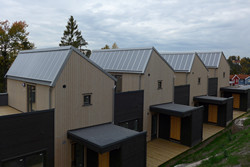Solar collectors from polymers
The aim of the SCOOP(opens in new window) (Solar Collectors made of Polymers) project was to provide materials and technical design and system concepts to enable the use of polymers in solar-thermal systems. This entailed the development of novel raw materials and polymeric thermosiphon systems. It also required compatibility with well-established, cost-effective and high-volume plastics processing techniques such as injection moulding and extrusion. Market analysis has pointed to increasing solar thermal energy use in Australia, Southern Europe and the United States, as well as in emerging markets such as Africa, Brazil, India, Indonesia and Mexico. As a result, scientists developed several different systems concepts by conducting comprehensive theoretical analysis including model building, simulation and optimisation. Experimental tests of components and systems were carried out to compare and identify the best candidates and a life cycle analysis (LCA) performed to ensure the positive ecological impact of the collectors. The consortium’s main focus was on increasing durability for polymeric materials at higher temperatures and following exposure to weathering. Service life prediction methodologies for solar materials were adapted to the new materials and components with respect to the operating conditions in the systems designed by the project partners. Accelerated indoor tests were conducted and validated by outside exposure tests, while highly sensitive, non-destructive tests were developed for reliable degradation analysis. Project partners evaluated the basic requirements for building integration of polymeric solar-thermal systems. They also assembled collector prototypes for building integrated pumped and thermosiphon systems using the components developed by SCOOP. In addition, possible obstacles were identified regarding the application of the current performance standards on polymeric collectors or systems. By taking advantage of low-cost, high-throughput plastics processing technologies, SCOOP will deliver novel polymer-based solar thermal systems with significantly lower costs than those making use of metal. For instance, reduced weight of polymers versus metal will give lower transportation and handling costs, while flexibility of shape and size will increase its architectural appeal. Moreover, widespread commercialisation of solar thermal systems for the growing building market will benefit both the EU economy and the environment.







